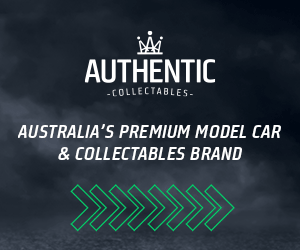The first Nissan – or technically, Datsun – was sold in Australia back in 1934, and since then the brand has gone on to become a consistent top 10 seller.
While it’s recently taken a bit of a hit in the sales charts and doesn’t fully manufacture cars here – something not done since 1992 – the brand still has a significant presence in Australia, even if it’s not beating its chest too loudly about it.
At the local launch of the Ariya electric SUV, Nissan Oceania managing director Andrew Humberstone said the marque could be doing a better job of leveraging its Australian heritage to provide a point of difference to the influx of new brands.
“When I talk to the network and I talk to dealers, the key message has been heritage in Australia, not heritage of Qashqai from the UK or design from Japan,” Humberstone said.

“So it’s about what is important to the company versus the consumer. And at the moment, what I’m trying to do is build the Australian-ness of the product.
“We’ve been here for what, 60 or nearly 70 years in market, and we don’t tell anybody. We have our own finance company – we don’t tell anybody. We have our own casting plant – we didn’t tell anybody.
“We are the fifth biggest dealer network in the market. We’re the third biggest OEM employer in the country with over 600 employees. But we never strung these things together to tell an Australian customer, ‘actually we are authentically present in the market. You can trust us and you have a residual value component, which we protect.
“‘By all means look at other competitors, but you have that level of comfort’.
By contrast, Humberstone said it’s “difficult” to market the brand’s Japanese heritage in Australia, where buyers are seemingly less concerned about where a car comes from or what it was inspired by.
“[It’s] very difficult in the sense that there is absolutely with this product (Ariya) – in terms of all of its design, very authentically Japanese – how do I market that here? I need to be quite niche in how I communicate that.
“It needs to be subtle, but I need to convince everybody out there to be comfortable to make that investment, because we are here to stay in market, as opposed to we are competing with the Chinese.”
Humberstone was also asked how Nissan could separate itself from the growing number of Chinese brands in Australia which increasingly threaten to take away sales.

“It’s a very good question, because it’s not so easy to answer, because we are a Japanese company, but we also have JVs (joint ventures) with Chinese companies,” Humberstone said.
“We need to be smart on how we manage that dynamic. The Japanese heritage is something that’s critical.
“As you know, we were the first OEM to build electric cars (the Leaf) and we were in the forefront of that technology. We have Formula E, our racing heritage where we’re learning so much around battery technology.
“There’s so much data that we have and it’s about how do we leverage that in terms of our
communication to market. Because it’s actually the one thing that probably half of this market, if not 80 per cent of this market doesn’t know because we haven’t communicated.”












Discussion about this post